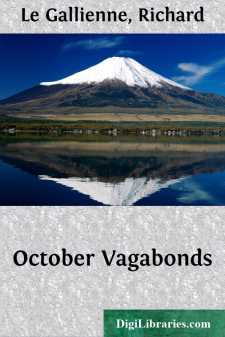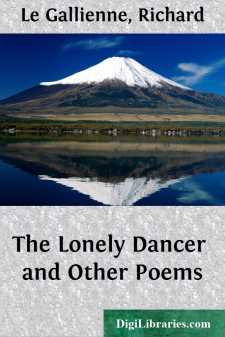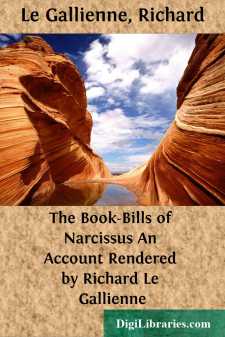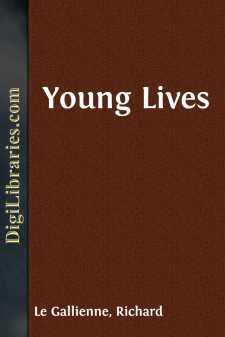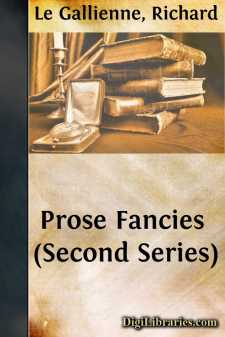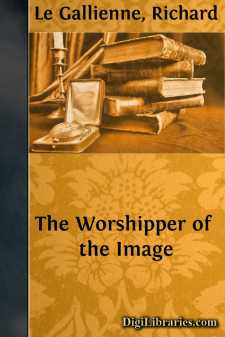Categories
- Antiques & Collectibles 13
- Architecture 36
- Art 48
- Bibles 22
- Biography & Autobiography 815
- Body, Mind & Spirit 144
- Business & Economics 28
- Children's Books 18
- Children's Fiction 14
- Computers 4
- Cooking 94
- Crafts & Hobbies 4
- Drama 346
- Education 58
- Family & Relationships 59
- Fiction 11835
- Games 19
- Gardening 17
- Health & Fitness 34
- History 1378
- House & Home 1
- Humor 147
- Juvenile Fiction 1873
- Juvenile Nonfiction 202
- Language Arts & Disciplines 89
- Law 16
- Literary Collections 686
- Literary Criticism 179
- Mathematics 13
- Medical 41
- Music 40
- Nature 180
- Non-Classifiable 1768
- Performing Arts 7
- Periodicals 1453
- Philosophy 65
- Photography 2
- Poetry 896
- Political Science 203
- Psychology 44
- Reference 154
- Religion 515
- Science 126
- Self-Help 85
- Social Science 83
- Sports & Recreation 34
- Study Aids 3
- Technology & Engineering 60
- Transportation 23
- Travel 463
- True Crime 29
Our website is made possible by displaying online advertisements to our visitors.
Please consider supporting us by disabling your ad blocker.
The Silk-Hat Soldier And Other Poems in War Time
Description:
Excerpt
TO BELGIUM
Our tears, our songs, our laurels—what are these
To thee in thy Gethsemane of loss,
Stretched in thine unimagined agonies
On Hell's last engine of the Iron Cross.
For such a world as this that thou shouldst die
Is price too vast—yet, Belgium, hadst thou sold
Thyself, O then had fled from out the earth
Honour for ever, and left only Gold.
Nor diest thou—for soon shalt thou awake,
And, lifted high on our victorious shields,
Watch the new sunrise driving for your sons
The hated German shadow from your fields.
“British colonists resident in London volunteer, and not even silk hats are doffed before training begins”
—New York Times
I saw him in a picture, and I felt I'd like to cry—
He stood in line,
The man “for mine,”
A tall silk-hatted “guy”—
Right on the call,
Silk hat and all,
He'd hurried to the cry—
For he loves England well enough for England to die.
I've seen King Harry's helmet in the Abbey hanging high—
The one he wore
At Agincourt;
But braver to my eye
That city toff
Too keen to doff
His stove-pipe—bless him—why?
For he loves England well enough for England to die.
And other fellows in that line had come too on the fly,
Their joys and toys,
Brave English boys,
For good and all put by;
O you brave best,
Teach all the rest
How pure the heart and high
When one loves England well enough for England to die.
One threw his cricket-bat aside, one left the ink to dry;
All peace and play
He's put away,
And bid his love good-bye—
O mother mine!
O sweetheart mine!
No man of yours am I—
If I love not England well enough for England to die.
I guess it strikes a chill somewhere, the bravest won't deny,
All that you love,
Away to shove,
And set your teeth to die;
But better dead,
When all is said,
Than lapped in peace to lie—
If we love not England well enough for England to die.
THE CRY OF THE LITTLE PEOPLES
The Cry of the Little Peoples went up to God in vain;
The Czech and the Pole, and the Finn, and the Schleswig Dane:
We ask but a little portion of the green, ambitious earth;
Only to sow and sing and reap in the land of our birth.
We ask not coaling stations, nor ports in the China seas,
We leave to the big child-nations such rivalries as these.
We have learned the lesson of Time, and we know three things of worth;
Only to sow and sing and reap in the land of our birth.
O leave us little margins, waste ends of land and sea,
A little grass, and a hill or two, and a shadowing tree;
O leave us our little rivers that sweetly catch the sky,
To drive our mills, and to carry our wood, and to ripple by.
Once long ago, as you, with hollow pursuit of fame,
We filled all the shaking world with the sound of our name,
But now are we glad to rest, our battles and boasting done,
Glad just to sow and sing and reap in our share of the sun.
Of this O will ye rob us,—with a foolish mighty hand,
Add with such cruel sorrow, so small a land to your land?
So might a boy rejoice him to conquer a hive of bees,
Overcome ants in battle,—we are scarcely more mighty than these—
So might a cruel heart hear a nightingale singing alone,
And say, “I am mighty! See how the singing stops with a stone!”
Yea, he were mighty indeed, mighty to crush and to gain;
But the bee and the ant and the bird were the mighty of brain....


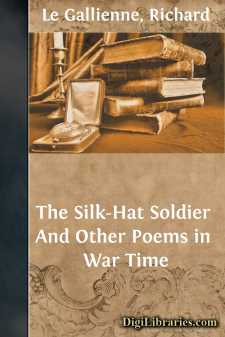
![The Romance of Zion Chapel [3d ed.]](https://digilibraries-com.s3.eu-central-1.amazonaws.com/covers/bb99a7f0-f28e-4430-8da2-9d5a92f4ee4e.jpg)

